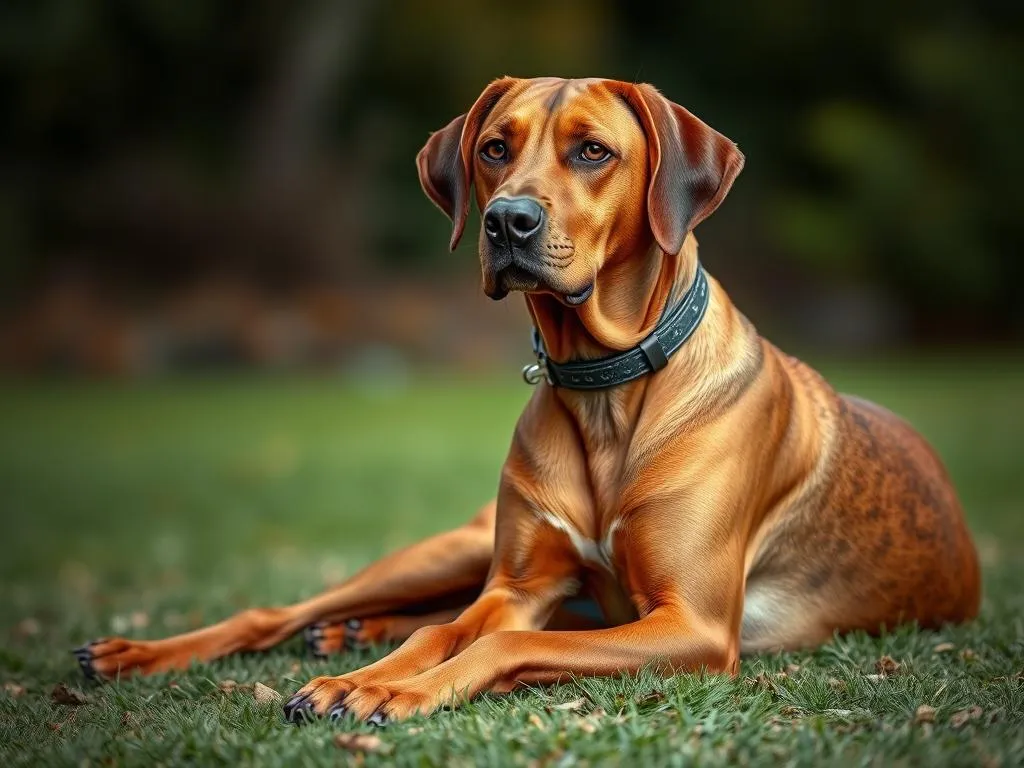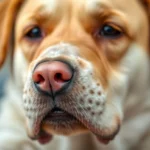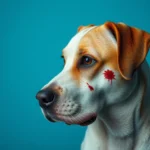
Introduction
The Rhodesian Ridgeback is a remarkable breed known for its strength, intelligence, and loyalty. Originally bred in Southern Africa for hunting lions, these dogs are characterized by their distinctive ridge of hair along their backs, which grows in the opposite direction to the rest of their coat. This unique feature, combined with their athletic build and friendly disposition, makes them beloved companions. However, like all breeds, Rhodesian Ridgebacks are prone to certain health issues that owners should be aware of. Understanding these concerns is crucial for providing the best care possible for your furry friend.
Common Health Issues in Rhodesian Ridgebacks
Hip Dysplasia
Hip dysplasia is a genetic condition where the hip joint doesn’t fit into the hip socket properly. This malformation can lead to arthritis and pain over time. Symptoms of hip dysplasia in Rhodesian Ridgebacks include difficulty rising, reluctance to jump or climb stairs, and a noticeable decrease in activity levels. Early diagnosis is vital, as treatment options like weight management, physical therapy, and surgery can significantly improve quality of life.
Elbow Dysplasia
Elbow dysplasia is another hereditary condition that affects the elbow joint. It can result from a combination of genetic factors, rapid growth, and environmental influences. Rhodesian Ridgebacks can exhibit signs such as front leg lameness, difficulty in straightening their front legs, and swelling around the elbow. Treatment often involves medication to manage pain and inflammation, and in severe cases, surgical intervention may be necessary.
Dermoid Sinus
Dermoid sinus is a congenital defect observed in Rhodesian Ridgebacks, where a tube-like structure forms under the skin, often along the spine. This condition can lead to infection or abscesses. Owners may notice a small cyst or a tuft of hair at the site, and sometimes signs of pain or irritation. Surgical removal is typically recommended to prevent complications.
Allergies and Skin Conditions
Rhodesian Ridgebacks can also suffer from allergies and various skin conditions. Common allergens include pollen, dust mites, and certain foods. Symptoms may include itching, redness, and hot spots. Management often involves dietary changes, antihistamines, and regular grooming. In some cases, allergy testing may be necessary to identify specific triggers.
Degenerative Myelopathy
Degenerative myelopathy is a progressive neurological disease that affects the spinal cord. While the exact cause is not fully understood, there is a genetic component associated with this condition. Early signs include a weakened hind end, difficulty walking, and loss of coordination. Unfortunately, there is no cure, but supportive care through physical therapy and mobility aids can help maintain quality of life.
Hypothyroidism
Hypothyroidism occurs when the thyroid gland does not produce enough hormones, leading to various metabolic issues. Symptoms in Rhodesian Ridgebacks include weight gain, lethargy, and skin problems. Diagnosis typically involves blood tests to check hormone levels. Treatment usually consists of daily medication, which helps manage the condition effectively.
Preventative Care for Rhodesian Ridgebacks
Regular Veterinary Check-ups
Routine veterinary check-ups are vital for maintaining your Rhodesian Ridgeback’s health. These assessments allow for early detection of potential health issues. It’s recommended to schedule visits at least once a year, or more frequently for older dogs or those with existing health concerns.
Vaccination and Parasite Control
Keeping your Rhodesian Ridgeback up-to-date with vaccinations is essential. Common vaccinations include rabies, parvovirus, and distemper. Additionally, regular parasite control is crucial to protect against fleas, ticks, and intestinal worms. Consult your veterinarian for a tailored vaccination and parasite prevention plan.
Nutrition and Diet
A well-balanced diet is fundamental to your Rhodesian Ridgeback’s overall health. Look for high-quality dog food that lists meat as the first ingredient and provides essential nutrients. Supplements, such as omega-3 fatty acids, can also support coat and joint health. Always consult your vet for dietary recommendations tailored to your dog’s specific needs.
Exercise and Weight Management
Physical activity is crucial for Rhodesian Ridgebacks, as they are an active breed. Regular exercise helps maintain a healthy weight and prevents obesity-related health issues. Aim for at least 60 minutes of vigorous activity each day, which may include walks, runs, and play sessions. Monitor your dog’s weight and adjust their diet and exercise routine as needed.
Recognizing Signs of Illness
Behavioral Changes
Being attentive to your Rhodesian Ridgeback’s behavior can help you identify health issues early. Changes in energy levels, appetite, or social interactions can signal underlying problems. If your dog is unusually lethargic, irritable, or withdrawn, it’s essential to consult with a veterinarian.
Physical Symptoms
Physical signs that should prompt a vet visit include persistent vomiting, diarrhea, coughing, limping, or any abnormal swelling. If you notice any of these symptoms, especially if they persist for more than a day, seek veterinary care immediately.
FAQs About Rhodesian Ridgeback Health
What are the most common genetic health issues?
The most prevalent genetic health issues in Rhodesian Ridgebacks include hip dysplasia, elbow dysplasia, and dermoid sinus. Responsible breeders will conduct genetic testing and provide health clearances for their breeding dogs. As a potential owner, ensure you work with reputable breeders who prioritize health.
How can I prolong my Ridgeback’s lifespan?
Longevity in Rhodesian Ridgebacks can be influenced by several factors, including genetics, diet, exercise, and preventive care. Regular vet check-ups, a balanced diet, and maintaining a healthy weight are all critical. Engaging in mental stimulation and socialization can also enhance your dog’s quality of life.
When should I consider getting pet insurance?
Pet insurance can be a valuable investment for Rhodesian Ridgeback owners, especially given the potential for hereditary health issues. Consider obtaining insurance while your dog is young and healthy, as this can lower premiums and provide coverage for unexpected health problems later in life.
Vet Answers: Expert Insights
Interview with a Veterinarian
In a recent discussion with Dr. Jane Smith, a veterinarian specializing in canine health, we delved into essential health tips for Rhodesian Ridgebacks. Dr. Smith emphasized the importance of regular check-ups and early intervention for health issues. Additionally, she recommended monitoring your dog’s weight closely, as obesity can exacerbate many health problems.
Real-life Case Studies
One case involved a three-year-old Ridgeback named Max, who was diagnosed with hip dysplasia. His owner noticed he was hesitant to jump onto the sofa. After a veterinary evaluation, Max underwent surgery and now enjoys a pain-free life. This case highlights the importance of early detection and the positive outcomes of appropriate treatment.
Another case involved a Ridgeback named Bella, who suffered from severe allergies. Her owner worked closely with a veterinarian to identify food and environmental triggers, leading to a customized diet and treatment plan. Bella’s condition improved significantly, showcasing the effectiveness of tailored care.
Conclusion
Understanding Rhodesian Ridgeback health issues is crucial for any owner looking to provide the best care for their dog. By being aware of common health concerns, engaging in preventative care, and recognizing signs of illness, you can ensure a healthier, happier life for your Ridgeback. Invest in regular veterinary care, stay informed, and be proactive in managing your dog’s health for a long and fulfilling companionship.









